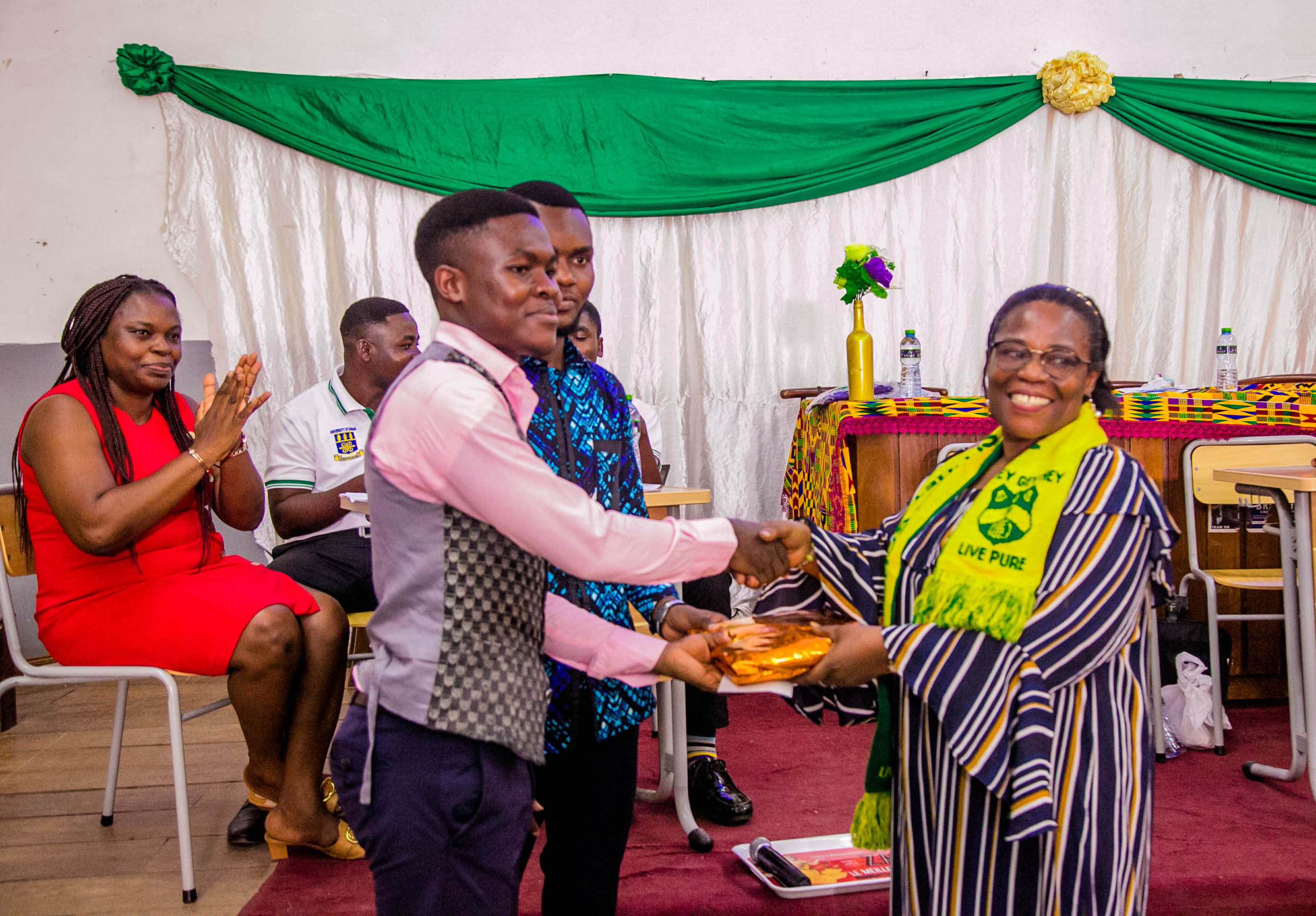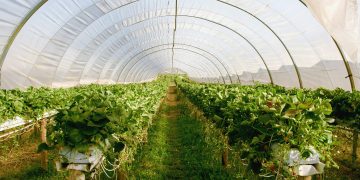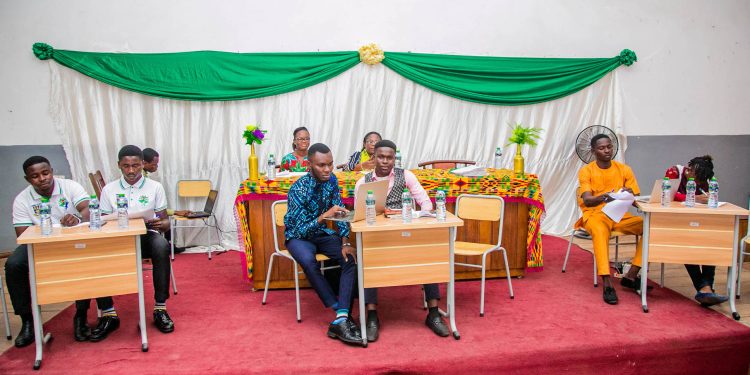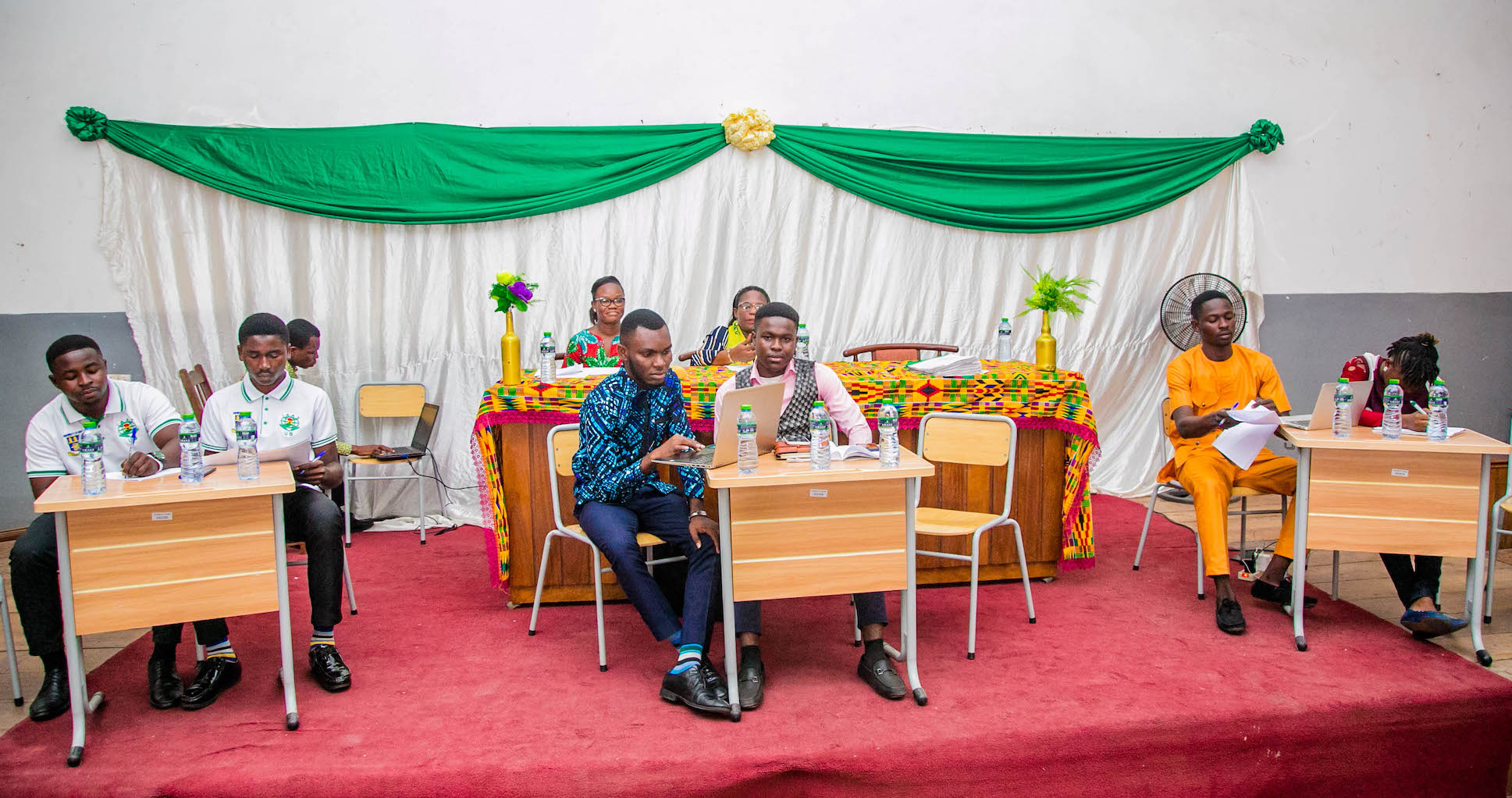Some agricultural students at the University of Ghana are urging youth to support the adoption of genetically modified (GMO) technology to help improve farm productivity and ensure food security
“With respect to health, environment and economic factors, genetically modified organisms are considered an improvement and I would admonish us all to embrace it,” said student Daniel Tetteh said during a debate competition on GMOs at the School of Agriculture.
From a health perspective, GM foods are no different than non-GM foods, he said. In fact, GM foods could even be considered healthier because of the rigorous approval processes they go through before being allowed onto the market.
Ghana has approved its first GM crop, Bt cowpea, which has inherent resistance to a destructive pest called maruca. The improved variety is expected to be made available farmers over the next few years.
GM crops will make significant contributions to meeting the United Nations’ Sustainable Development Goals, particularly goal 1 on reducing poverty and goal 2 on reducing hunger, Tetteh said. Increased yields contribute to higher household incomes, which reduce poverty, and also enhance household food security, he added.
The student said the adoption of GMOs in Ghana will have a positive impact on the economy, allow for farmers to grow more crops without the need for extra land and help drive down the food prices for the benefit of consumers.
“GMOs can have remarkable environmental benefits,” Tetteh said. “They allow farmers to produce more food with fewer inputs. They help us spare land, reduce deforestation and reduce chemical use. Research clearly indicates that GMO crops are not inherently dangerous to the environment. On a global scale, GM crops have actually had a positive impact on the environment.”
Tetteh is one of six students who debated the motion “Ghana Needs GMOs.” Four of the students spoke in favor of the motion, while two spoke against it. The debate was organized by the Alliance for Science Ghana in collaboration with the International Association of Students in Agriculture and Related Sciences, as part of the Ghanaian Youth Debates series.
Adusei Wiafe Clement said that to encourage acceptance, the public needs to be educated on the environmental benefits of GM crops, as well as the general scientific benefits of GM crops in other African countries.
“GM crops are estimated to have benefited Burkina Faso’s economy by $100 million per year,” he said. “These are some of the importance of GMOs and that is why we are campaigning for it to be implemented and subscribed by the Ghana government.”
Theodore Adu, speaking for the motion, said innovative ideas and technology like GMOs should not be ignored but embraced in the agricultural sector. Countries like the United States and China have shown that GM crops can be beneficial to the public and Ghana should not shun the technology, he said.
Enoch Agyekum, who spoke against the motion, contended that GMOs have not been tested enough to be given the green light in Ghana.
“GMOs adoption has not reached a century since its invention,” he said. “That means its (full) effects have not yet been seen… Why should Ghana accept it?”
Agyekum urged the government to focus instead on fixing problems like gender imbalance in agriculture, poor image of agriculture, post-harvest losses and marketing challenges with agricultural production.
Wendy Osman also spoke against the motion. She claimed that GMOs could negatively impact Ghana’s environment if adopted by farmers. “GMOs could cause an imbalance in the ecosystem,” she said. “Let’s be mindful that we humans are not the only ones that eat plants. Other animals do too.”
Jayden Kudjoe, who spoke for the motion, challenged his colleagues’ claims that GMOs are not well tested and could negatively impact the environment.
“The comments about GMOs not being safe have no references,” he said. “Why should Ghanaians have problems with growing GMOs in Ghana but rather import GM products from America?”

Quoting Prof. Eric Yirenkyi Danquah, founding director of the West Africa Centre for Crop Improvement (WACCI) at the University of Ghana, Kudjoe said Ghana has a more urgent need than the rest of the world for GMOs. He said challenges like climate change and population rise are increasing food insecurity in the world, heightening the urgent need for technological innovations to stem that trend. Disrupted rainfall patterns, drought, extreme weather events, pest infestations, plant diseases, crop losses, and hunger are also negatively impacting the African continent.
“Better seeds developed through genetic engineering offer hope. Let us not allow regulatory delays to prevent millions of farmers from accessing this life-saving technology,” Kudjoe said.
Drs. Beatrice Ife and John Saviour Eleblu, both lecturers at the University of Ghana who mentored the debaters, commended the students for a spirited debate and urged them to continue educating others about GMOs.
“This debate is well thought of and I am glad to be here,” Eleblu said. “Genetic modification is a technology. We should adopt it. We shouldn’t always wait to take GM products from external sources. We can equally develop the technology here by our own scientists.”
University of Ghana School of Agriculture Dean Irene Egyir expressed confidence that the debaters and their audience walked away with useful lessons about science that can guide their studies.
“Science serves mankind well,” she observed. “But some people have their own minds on whether to stick to science all the time or not. That is why it calls for a debate.”
Some of the students who spoke to the Alliance for Science after the debate said they had learned a lot.
“I think it was a good program to enlighten the student population about GMOs,” said Albert Bandoh. “A lot of us have understood the concept of GMOs more fully than what you will get from watching YouTube videos. What you will get there is not what you will get from a discussion or debate like this.”
Ernest Menson said he previously “had a (negative) mindset about GMOs… But today’s program was very informative. Now, I am standing on the border.”
Gideon Ayittey agreed. “Seeing my colleagues argue about GMOs with facts was so impactful and informative. I have also unlearned some prejudices that I had against GMOs.”
O artigo foi publicado originalmente em Cornell Alliance for Science.























































